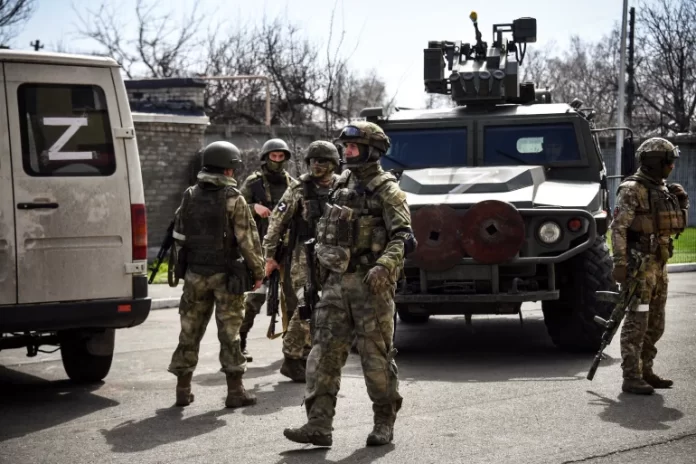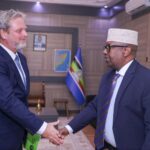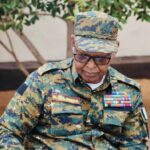KYIV – Ukrainian military has captured a Somali fighting in the frontline near Avdiivka, a city in Donetsk Oblast, Ukraine.
Citing Armiya TV, Adviser to the Minister of Internal Affairs of Ukraine Anton Gerashchenko on Thursday said the fighter surrendered together with other Russian counterparts.
“He had a passport from Somalia and barely understood Russian or Ukrainian. Just like other mercenaries, he went to fight for the money. He arrived in the frontlines at the end of December and surrendered as a prisoner at the beginning of January,” Gerashchenko said on X, formerly Twitter, on Wednesday.
On December 29, 2023, Clash Report, which reports on global conflicts, shared a video recording of three fighters from Somalia, India and Syria at shooting training range.
During the questioning, the fighter identified himself as a Somali and his name as Adir Mohamed.
Earlier in December, the BBC reported that Russian authorities are allegedly enticing migrants seeking to enter Finland with expired visas to stay in Russia, only to later deploy them to fight in Ukraine.
On Thursday, January 11, the Finnish government announced an extension of the border crossing points on the land boundary with Russia until February 11, 2024.
“It will not be possible to submit applications for international protection at any border crossing points on the land border between Finland and Russia. The Government decided on the matter in its session on 11 January 2024,” it said in a statement.
On December 14, 2023, Finland temporarily closed the border crossing points for one month and centralised the submission of applications for international protection to stop instrumentalised migration at the eastern border.
“Based on information gathered by the authorities, it is very likely that Russia’s hybrid influence activities will resume and expand as we saw earlier. We therefore consider it necessary to keep the eastern border closed,” Finnish Interior Minister Mari Rantanen said.
Instrumentalization of migration refers to instances where a perpetrating actor attempts to exert power by strategically creating or exploiting migration outflows, threatening to overwhelm the capacity of the target state to accommodate the inflow and to destabilize the target state such as was the case of the migration crisis created by Belarus at the EU external border in 2021.
“The risk that instrumentalised migration will resume at the eastern border poses a serious threat to national security and public order in Finland. According to the authorities, it is clear that the Russian authorities or other actors have been facilitating instrumentalised migration. This phenomenon also involves international crime,” Finland said on Thursday.
The BBC report said migrants unknowingly signed Russian-language contracts with terms they do not understand, stipulating they must work for Russia for a year, after which they would have the right to remain in the country. The work is fighting in the frontline.
The network interviewed a Somali man who claimed to have signed such a contract. He revealed that in his group, there were five other Somalis, five Arabs, and one Cuban national.
This is not new.
On October 24, 2022, Tanzanian student Nemes Raymond Tarimo, whose age varied between 33-37 by different accounts, was killed while fighting for the Wagner Group in the eastern Ukrainian town of Bakhmut. According to Tanzanian media, Tarimo, 33, had been arrested on drug-related charges in Russia and was told he’d be released if he fought in Ukraine.
In September 2022, Zambian national Lemekhani Nyirenda, 23, also died in Ukraine while fighting for Wagner.
Nyirenda, a student at the Moscow Engineering Physics Institute, had been serving nine years in prison for a drug offence, and was promised his freedom, if he worked as a mercenary.
Quoted by the BBC, Zambia Foreign Minister Stanley Kakubo said that after asking for an explanation about how Nyirenda had ended up in Ukraine, “We were informed that Russia allows for prisoners to be provided an opportunity for pardon in exchange for participation in the special military operation”, which is how Russia refers to its war in Ukraine.





